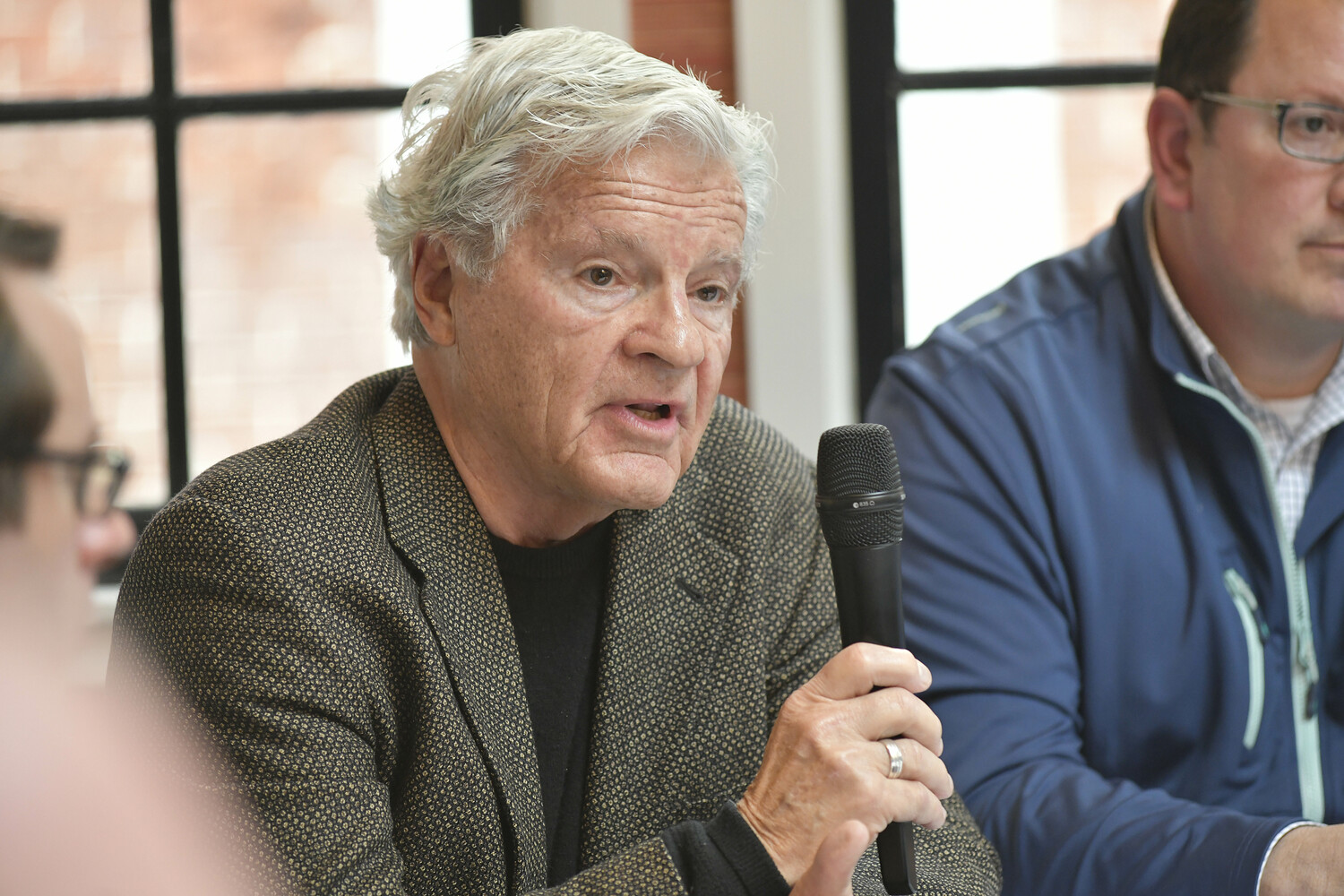
Jim Larocca, the former mayor of Sag Harbor Village, attended “Taking the Pulse of the Hamptons Real Estate Market,” an Express Sessions conversation held in the village last Thursday, February 15, to implore members of the real estate community to get more involved in advancing affordable housing.
“There is no other issue in the village as potent as affordable housing,” Larocca said, speaking from the audience and addressing the many real estate agents and brokers in the room at Page at 63 Main. “My successor, Tom Gardella, in the paper this week talking about affordable housing, mentioned that two of his five children have left. And that’s a heartbreaker in that family, I can tell you.”
Larocca noted their departure from Sag Harbor as an example of “a loss to the character and the heart of this community.”
Much of the affordable housing discussion the agents were having during the Express Sessions event is a matter of public policy, Larocca said. “You are very powerful figures here measured by the customer base that you have, the amount of money you’re transacting, the influence you’re having on banking, construction and all of the rest. I don’t see you’re terribly involved in this issue. And I would like to suggest to you as an industry that you be more active.”
According to Larocca, the Village of Sag Harbor lacks an affordable housing plan, and he emphasized the difficulty in creating one.
“There’s a lot of brainpower in this room, a lot of experience, that I think would be very relevant to the next steps in addressing affordable housing — if there are such steps even to be found,” he said. “We passed three bills when I was mayor, two of which were rescinded by the court on the lawsuit of a group of people, self-appointed, self-important members of this community, all of whom lived in houses at a minimum of a million and a half dollars or more in value.”
He said the opposition to affordable housing “was dressed in other clothes” but did kill affordable housing.
Larocca alluded to a mixed-use development proposed by developer Adam Potter that would have added 79 affordable apartments to the village; the pitch was met with resistance and was later reduced to 39 units but still failed to advance.
“That chased away seven projects that we were looking at when they saw what happened to this project,” he said. “They don’t like the guy, they didn’t like the architecture. All valid issues, but it killed the market.”
Larocca said the politics in the village changed starting in 2017 when a campaign began to register second-home owners to vote in the village.
“The voting bloc in this village that is controlled by that or influenced by that organization may be now dominant,” he said. “So when you talk about locals, the locals’ voice is being diminished all the time.”